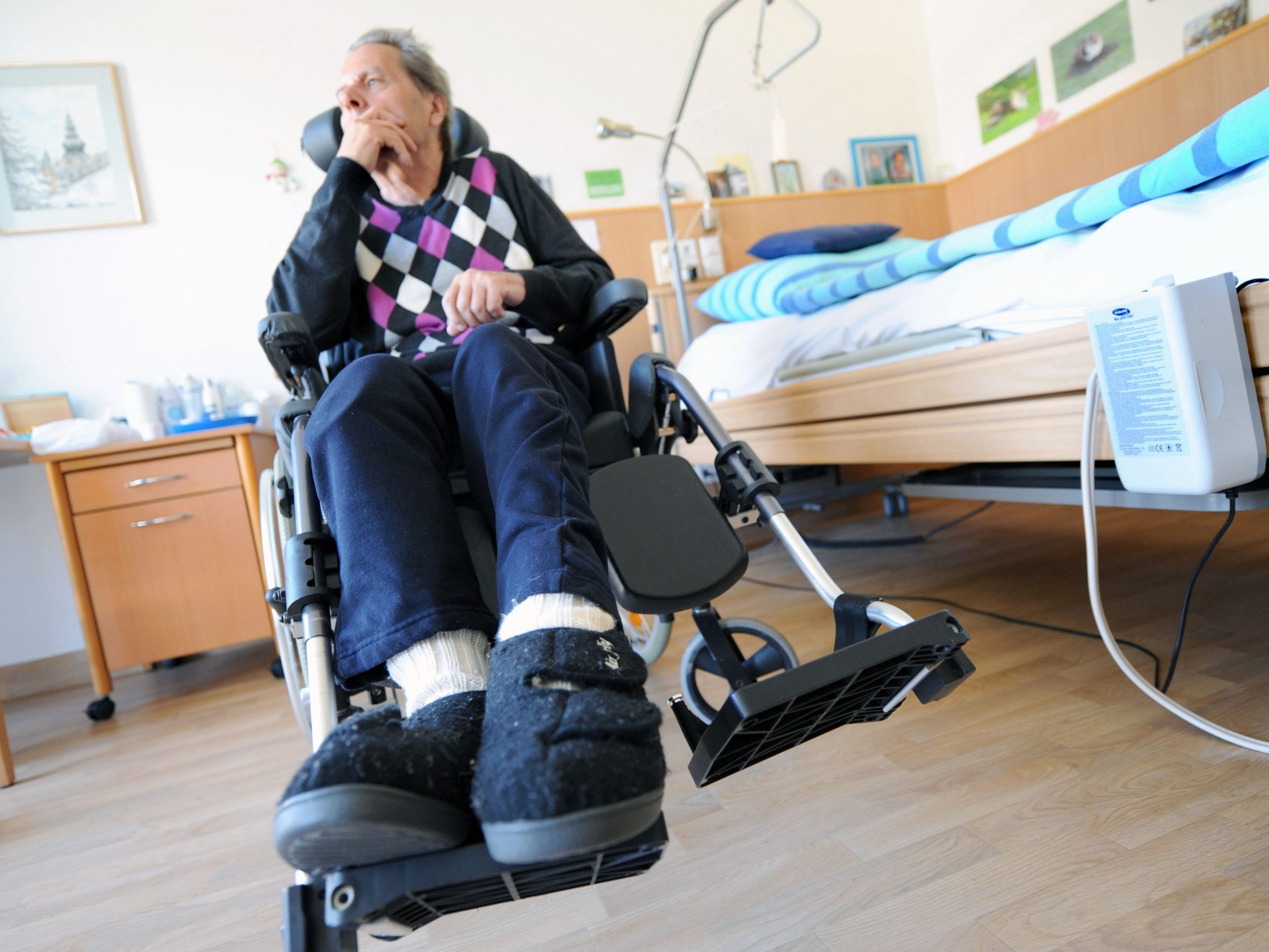Strapped in and Calmed Down: Conditions in Austria's Care Facilities Are Worsening

The residents' advocacy group Vertretungsnetz has once again recorded a peak in restrictions on freedom in residential and care facilities. Last year, around 60,200 restrictions on freedom were reported to the advocacy group, which, on behalf of the Ministry of Justice, reviews restrictions on freedom for people who are institutionally cared for. In a press release, Vertretungsnetz called for more resources and better working conditions for staff from providers and federal states.
Reports from Affected Individuals in Austria Increase
The number of reports and affected individuals has been increasing for several years, it was stated on Wednesday. "Almost 22,100 people were affected by one or more measures," Grainne Nebois-Zeman, head of the residents' advocacy department at Vertretungsnetz, is quoted in the press release. Compared to 2023, five percent more reports were recorded, and almost a third more in a three-year comparison. The "Ö1 Journal um acht" was the first to report on this.
The residents' advocacy group spoke of an "alarming development." Restrictive measures include locked rooms, wheelchair belts, or sedative medications. These may only be used if there is a serious and significant threat and no alternative or milder measure is possible, it was stated.
Residents in Nursing and Care Homes Calmed with Medication
The residents' advocacy group described the situation in nursing and care homes as "particularly concerning." About half of all reports come from there, with around 30,400 newly ordered measures recorded. 71 percent of all restrictions are due to sedative medications against restlessness and the urge to move.
The use of psychotropic drugs increases the risk of falls. Therefore, additional measures such as belt systems or side rails are often used for protection. However, these further restrict freedom of movement and can contribute to the long-term immobilization of residents. It was noted "with concern" that the number of people with multiple restrictions on freedom has increased significantly in the past year. For the first time since the pandemic, more measures were reported in 2024 to prevent residents from leaving an area.
"In particular, the ongoing staff shortage in the facilities has a negative impact. Although the high personal commitment of caregivers and nursing staff often ensures that care is provided, the pressure and high turnover in many facilities lead to residents being mobilized less often. As a result, we see more restrictions on quality of life and fundamental rights," said Nebois-Zeman.
Dealing with traumatized children particularly challenging
The residents' representation also reviews restrictions on freedom for children and adolescents when they live in facilities or attend a special school. Reports from residential facilities occur, for example, when caregivers give children psychotropic drugs or physically restrain them during impulse outbursts. In 2024, around 6,800 new measures were reported and reviewed, it was said. About 60 percent were related to residential facilities, 40 percent to the school sector. A total of 2,123 children and adolescents were affected by one or more restrictions on freedom.
In recent years, the residents' representation has noticed that caring for minors has become very difficult, especially in urban areas. Highly traumatized children would exhibit particularly challenging or even violent behaviors, resulting in intensive intervention restrictions. Even if the pressure is high, "we always question coercive measures on children and adolescents very carefully to see if they are really necessary. Because the experienced violence can re-traumatize young people, and development opportunities can be lost," said Nebois-Zeman.
Greens demand relief for the care system
The Greens supported the residents' representation's demand for more resources and better working conditions for caregivers "with emphasis," as stated in a release on Wednesday. "If sedative medications, bed rails, or movement restrictions increase, it is a clear signal that our care system is under pressure - and at the expense of those affected and the care staff," said Ralph Schallmeiner, care spokesperson for the Greens. There is a need for nationwide uniform, legally binding guidelines on how many caregivers must be on duty per person being cared for. Additionally, the party called for further investments in training and working conditions as well as closer monitoring of restrictive measures.
(APA/Red)
This article has been automatically translated, read the original article here.





